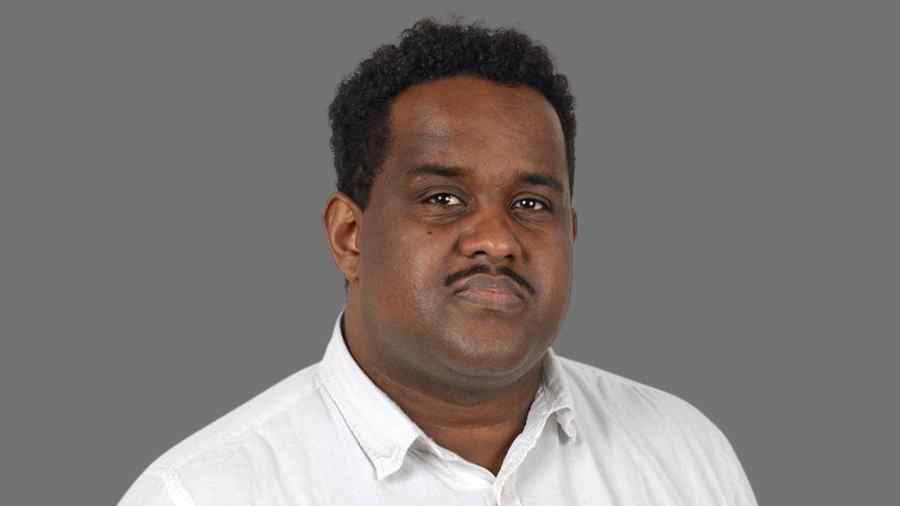Ismail Einashe: The Storyteller Redefining Migration and Identity Through Journalism

Ismail Einashe is one of the most respected voices in contemporary British journalism, known for his deep, empathetic reporting on migration, refugees, human rights, and identity. As a London-based journalist, writer, and cultural commentator, he has carved out a unique niche where storytelling meets social consciousness. His work spans continents, blending personal experience with powerful narratives that humanise some of the most pressing global issues of our time.
Early Life and Background
Ismail Einashe’s life story is as remarkable as his journalism. Born in Somalia, he moved to the United Kingdom as a child refugee during the Somali Civil War. This early experience of displacement left a profound mark on him, shaping his understanding of identity, belonging, and migration. Unlike many who simply report on these issues from the outside, Einashe speaks from lived experience. He knows what it means to rebuild a life in a new country, to navigate cultural duality, and to seek acceptance in a world that often misunderstands refugees.
Education and Career Beginnings
After settling in the UK, Ismail Einashe pursued his education with determination, eventually stepping into the world of media and journalism. His early career saw him writing for major British outlets such as The Guardian, BBC News, and The Sunday Times. From the very beginning, his focus was clear: he wanted to use storytelling as a force for empathy and change. Unlike sensational reporting that often oversimplifies migration, Einashe’s work takes readers inside the lives of migrants — revealing their hopes, fears, and struggles with honesty and compassion.
Journalism that Gives Voice to the Voiceless
Einashe’s journalism stands out because it speaks for those who are often ignored. His investigative reports and feature stories highlight the lived realities of refugees, unaccompanied minors, and migrant workers across Europe and Africa. He approaches each story with a sense of humanity that challenges stereotypes and media biases. His reporting often exposes systemic failures — from border control policies to asylum systems — but always through the lens of the people affected.
For Ismail Einashe, journalism is not just about uncovering facts; it is about restoring dignity to those who have been stripped of it. His articles go beyond data and statistics to focus on emotion, context, and culture. In a world where refugees are often portrayed as numbers or political problems, he reminds readers that each migrant has a story worth telling.
Major Works and Publications
One of Einashe’s most notable achievements is his co-editing of Lost in Media: Migrant Perspectives and the Public Sphere. This book, published in 2019, brought together a collection of essays and reflections that questioned how migrants are represented in European media. The work became an essential reference point for anyone interested in understanding how narratives shape public perception.
His recent book Strangers (Tate Publishing, 2023) goes even further. In it, Ismail Einashe explores migration through the lens of art and culture. The book presents powerful visual and written stories about identity, belonging, and displacement. It examines how artists and migrants interpret the idea of being a “stranger” — not just as outsiders, but as individuals who bring new perspectives and creativity to society.
Awards and Recognition
Ismail Einashe’s work has been celebrated internationally. He received the Migration Media Award in 2019 for excellence in covering migration issues. In 2021, his investigative collaboration earned him the Investigative Journalism for Europe (IJ4EU) Impact Award, recognising his outstanding contribution to cross-border journalism. He was also a finalist for the European Press Prize, one of the continent’s most prestigious journalism honours.
His credibility extends beyond awards. Einashe has been an Ochberg Fellow at the Dart Center for Journalism and Trauma, affiliated with Columbia University in New York. This fellowship focuses on helping journalists ethically and sensitively report on trauma — a subject central to his work. He is also a Pulitzer Center grantee, an honour given to journalists working on stories with global significance.
Themes in His Writing
Ismail Einashe’s writing blends journalism with cultural analysis, addressing deep questions about identity and belonging. His work often revolves around several recurring themes:
- Migration and Borders – Einashe examines the human cost of migration, showing how global politics affects individuals on the move.
- Media Representation – He challenges the stereotypes perpetuated by mainstream media about refugees and migrants, urging a more balanced portrayal.
- Cultural Belonging – His stories often highlight how migrants maintain their culture while integrating into new societies.
- Art and Storytelling – In Strangers, he shows how art can serve as a bridge between cultures, transforming pain into beauty.
- Human Rights and Justice – Whether writing about Europe’s border policies or African geopolitics, Einashe’s perspective is always rooted in justice and compassion.
Personal Connection and Identity
What makes Ismail Einashe truly unique is his ability to weave personal experience into professional storytelling. As someone who fled conflict and resettled in Britain, he understands the emotional complexities of migration firsthand. His empathy is not theoretical — it is lived. This gives his work authenticity and depth that few journalists can match.
Einashe often reflects on the tension between feeling both Somali and British, African and European. His writing captures the bittersweet truth of belonging everywhere and nowhere at once. In doing so, he speaks not only for himself but for millions of others navigating similar dual identities across the globe.
International Reporting and Global Impact
Beyond Europe, Ismail Einashe’s reporting extends to Africa, where he has covered China’s growing influence in countries such as Kenya, Tanzania, and Ethiopia. He explores how global economic and political forces shape the daily realities of people in the developing world. His cross-border investigative work has appeared in respected international outlets like Foreign Policy and The Atlantic.
Through these stories, he brings to light the interconnectedness of global issues — from migration to economics, from colonial legacies to modern diplomacy. Einashe’s work reminds readers that migration is not just a European problem but a global one, shaped by centuries of history and power dynamics.
Advocate for Ethical Journalism
In an age of misinformation and clickbait, Ismail Einashe stands for ethical, empathetic, and evidence-based journalism. He believes that journalists have a moral duty to tell stories that challenge prejudice and promote understanding. His work serves as a model for young journalists who want to combine truth-telling with compassion.
Einashe also mentors emerging reporters and contributes to discussions on diversity in media. He encourages newsrooms to include voices from migrant and minority backgrounds to ensure balanced coverage. His belief is simple: the people being reported on should also have the power to shape the narrative.
Cultural Influence and Art Connection
In addition to journalism, Ismail Einashe has a deep interest in art and culture. As a member of the editorial board of Tate Etc magazine, he engages with artistic discussions that merge visual storytelling with social awareness. His book Strangers perfectly reflects this crossover, showing how creativity can make complex issues more relatable.
Art, for him, is another language of empathy — one that transcends political divides. By connecting journalism and art, Einashe demonstrates how storytelling can not only inform but also inspire.
Legacy and Inspiration
Einashe’s legacy lies not only in the awards he has won but in the countless minds he has changed. His ability to humanise statistics, give names to the nameless, and portray migration as a shared human experience makes his work timeless. In a world increasingly polarised by fear and misinformation, his journalism acts as a bridge between cultures.
He is a reminder that good journalism is not about popularity but about purpose. By amplifying the voices of the marginalised, Ismail Einashe continues to prove that storytelling can be a powerful tool for justice and empathy.
Lessons from His Journey
From his life and career, there are key lessons for anyone striving to make an impact through words:
- Authenticity is powerful. Write from experience, not assumption.
- Empathy changes narratives. Understanding others can shift public perception.
- Integrity builds influence. Awards and recognition come naturally when your work is rooted in truth.
- Diversity strengthens journalism. Representation in media is vital for balanced storytelling.
These principles make Einashe’s career not just an example of success but a blueprint for meaningful journalism in the 21st century.
Conclusion
Ismail Einashe’s story is one of courage, empathy, and purpose. From a refugee fleeing conflict to an award-winning journalist shaping global conversations, his journey symbolises resilience and hope. Through his reporting, books, and mentorship, he continues to redefine how the world views migration and identity. His life reminds us that journalism is more than news — it is a mirror reflecting humanity in all its beauty and struggle.



